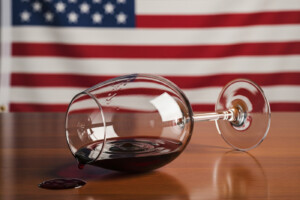
Europe is the homeland of wine culture, to the point that wine has been the first distinctive element of being European (linked to the expansion of Christianity), and over the centuries has transformed the landscape, saving it, especially in recent times, when the value of vineyards, at least in the most suitable territories, has far exceeded that of a historical economic asset such as industrial and building area. In a nutshell, it is the thought of Philippe Daverio, art historian, cultural anthropologist and one of the finest men of culture in our country, interviewed by WineNews, met in recent days, in the celebrations for the 50th anniversary of the designation of Conegliano Valdobbiadene Prosecco Superiore Docg, to speak of “landscape”, and how, through the testimonies left by the figurative arts, and not only, the landscape, even the wine-growing landscape, has changed over the centuries. “In the past, vineyards were part of the landscape balance that was portrayed in the medieval Buongoverno of Lorenzetti in Siena. Recently, however, a miracle has happened thanks to wine, which has made the vineyard land more expensive than the industrial ones, saving the territory. Today a new wine landscape is emerging. There were three phases: the Piedmontese one, with Barolo and quality vinification, then there was the great revival of the Chianti Classico, and then recently the Trentino and Alto Adige boom, where the vineyard is integrated with the other great “economic landscape”, which is that of the apple, and thanks to the vine and apple the landscape has been preserved. The landscape of today, of course, is not the same as it used to be. The great thing about the Italian landscape is that it is “naturally anthropized, for thousands of years there has been no virgin forest, and the evolution of the landscape is one of the most important events that we have had the good fortune to live”.
A landscape that today has become an important part of the added value of a wine. “A part of the function of the landscape - explains Daverio - is also in communication, one thinks about the quality of wine also because it associates it with a particular landscape. And, in this sense, there is still much to do, because Italians are “shy” compared to the French with their chateaux. Moreover, the Italian “chateaux” are more interesting than those that are often modest country “houses” that in Bordeaux are called chateaux, while we have a historical landscape, the great villas, but we need to work on it more, and understand how much the recovery of the past can be an element of competition”.
These days there is a lot of talk about Europe, and its divisions and one wonders if, at least in wine and food, we have achieved a shared identity and language. “Much has been done about the “language” of enogastronomy in Europe, but especially by the French, it is Italy that is a little late, also because it must be said that the choice to focus on quality wine came after methanol (1986, ed.). Those who produced high quality were really a small percentage of those who produced wine. Then this phenomenon happened, and the quantity dropped, but the turnover increased. However, in any case, the language is not sufficiently shared. We were very weak. The stupidity of having had Hungary deceive us about the right to call Tocai the wine of Friuli is emblematic, it is proof of a nullity of force at European level that is almost “criminal”.
The European issue is also the focus of Daverio’s latest book, “Four Conversations on Europe”, and one is dedicated to food and wine, “In vino veritas, in cibo sanitas”. “The message is that Europe is the western peninsula of Asia founded on wine. It is an objective fact, we are the culture of wine. We learned the tomato and the potato, we were able to take and learn many things, including distillation, from the Arabs. Without a good relationship with the Arabs, we would not have had grappa. Europe moves, learns here and there, and here is our strength”. A message that goes beyond wine, in an era in which we return to talk about sovereignty.
“If they had been sovereign the Hungarians - says Daverio – they would never have had the Tokaj, which arrived to them by marriage between a Formentini, of Milanese origin, who brought the Tocai in Hungary at the beginning of the seventeenth century (some documents of 1630 tell that the Countess Aurora Formentini, who was going to marry the Hungarian Count Adam Batthyany brought as a dowry “300 victims of Toccai”, ed).
The message is as clear and simple as sharing a glass of wine. “Sometimes a glass of wine would be enough - concludes Daverio - to have a clearer head. It would be great to be more aware of this European ability to learn. The importance of wine, which has been the first distinguishing element of being European, thanks to the spread of Christianity, in which, without wine, there is no community”.
Copyright © 2000/2025
Contatti: info@winenews.it
Seguici anche su Twitter: @WineNewsIt
Seguici anche su Facebook: @winenewsit
Questo articolo è tratto dall'archivio di WineNews - Tutti i diritti riservati - Copyright © 2000/2025